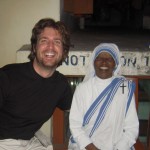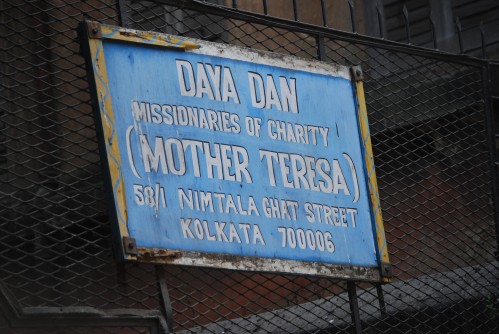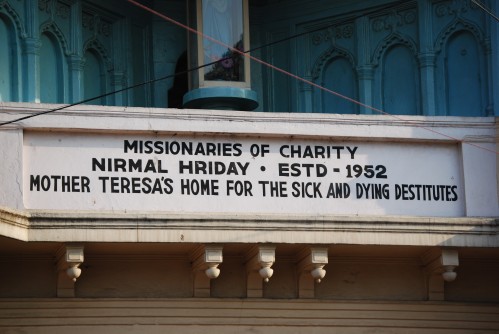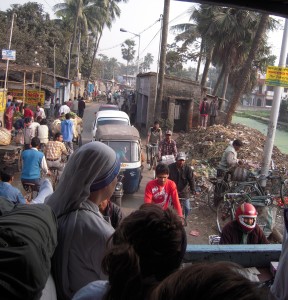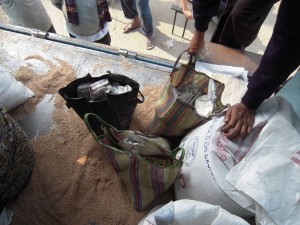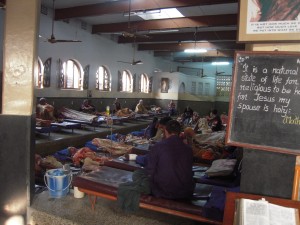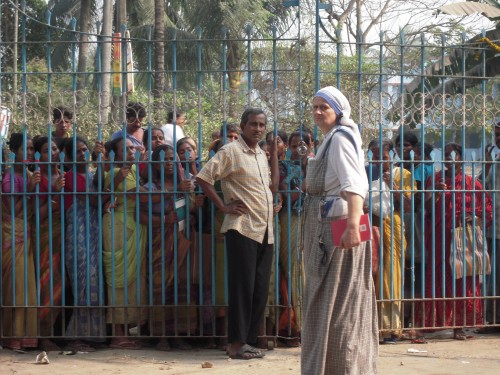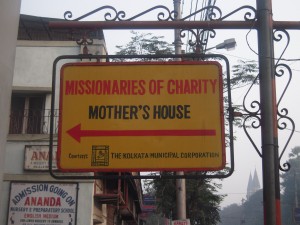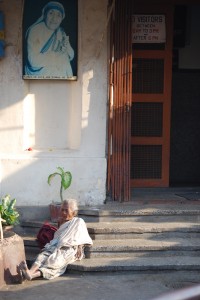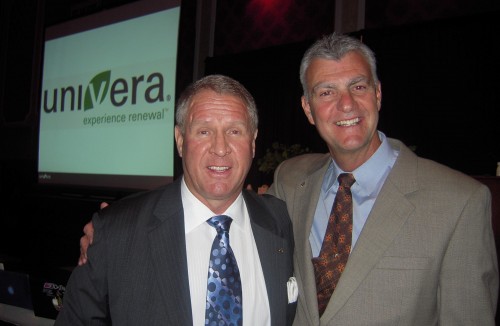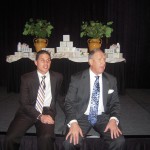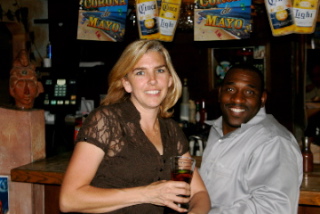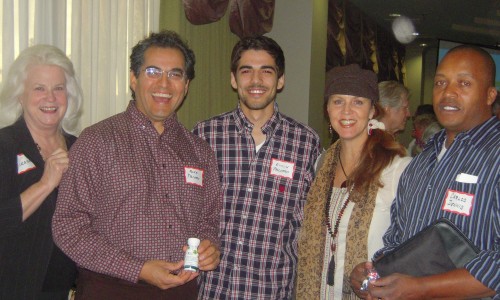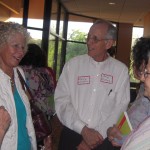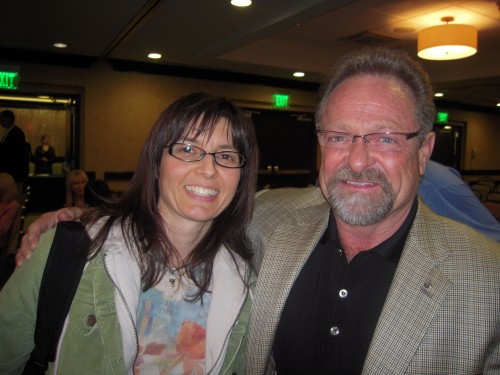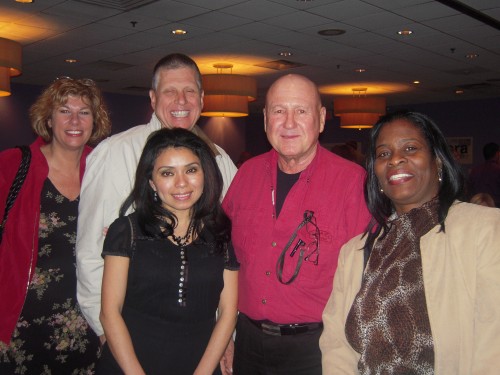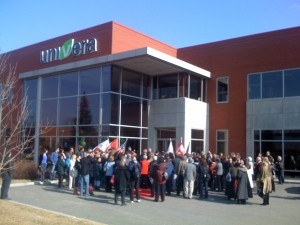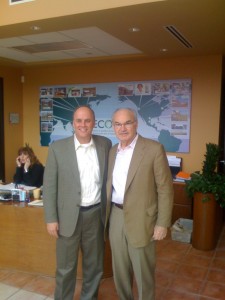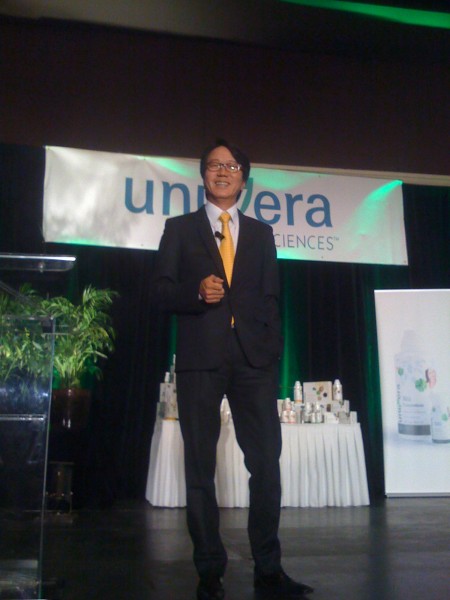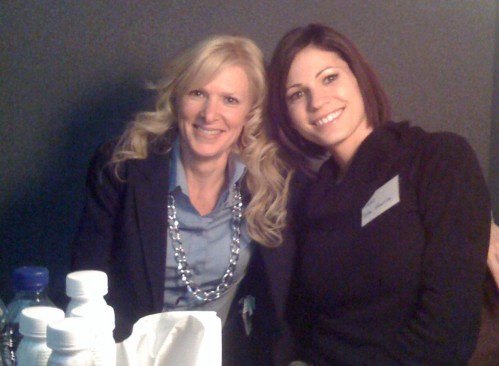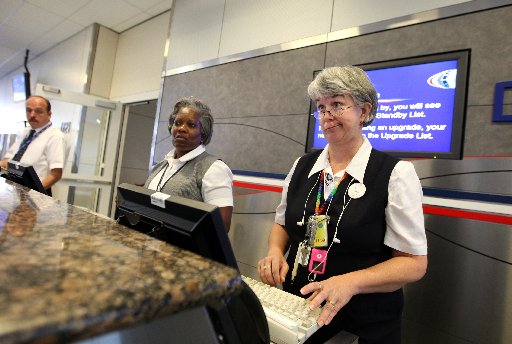
The following post is part of my weeklong series “Lessons Learned from Mother Teresa” (read that post first). This excerpt is part three, the final component, of the Direct Selling News article from March. I’ll post the full article and link this weekend.
“Do not wait for leaders; do it alone, person to person.”
-Mother Teresa
During my first and second visits, I had a near identical experience and awakening. I remember walking to the Home of the Sick and Dying, through a part of town called Kalighat (which is also home to a very popular Hindu temple).

As I was walked I saw thousands of people on the street. Thousands. Babies, literally newborn infants, sleeping on dirt streets with nothing.
Begging children who were blind, as a result of unspeakable horrors inflicted upon them intentionally by adults in an attempt to amplify their appeals for help.
Innumerable bodies that were frail and physically afflicted with — at best — malnourishment, and — at worst — deadly diseases without any source of healthcare assistance.
As I continued to walk, the sights and sounds became more stirring, and my soul became emotionally discouraged. I felt a sense of helplessness and hopelessness I’ve rarely experienced. In the past, I always felt in most situations that I had a sense of control or an impact-based solution. In this case, the further I walked, the more I saw, and the deeper the extent of the extreme poverty, I began to feel that there was absolutely nothing that I could meaningfully contribute.

Yet, when I walked through the doors of the Home of the Sick and Dying, I saw 65 men lying there — whose lives, at that moment, I could impact. I remember Mother Teresa saying “Just one, even if you can help just one…” It was with this memory of her voice, coupled with the experience, which led me to understand during my time with the Missionaries of Charity that you’ll make a difference by helping just one person.
This was a profound idea for me as I came home. Many problems around the world, in my country, and even in my local community are not easily fixable. But what I clearly realized is that there’s no reason why I can’t have an impact on that one person who is out there, that needs a voice, a friend, an ear, some time, or a meal.
And most likely, what they really need is love.
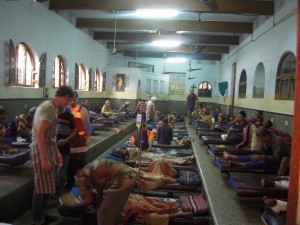
There exists no rational reason why I, as a human being who has been given so much, can’t simply take another few steps to help that one person who needs it most – regardless of whether that circumstance exists in my company, field organization, church, family, or community. Or, simply, a random person in the path right in front of me.
What I learned about real, undying, and unyielding acts of service from Mother Teresa were shared with me by herself in the 90’s, and re-stated this most recent trip by Father Abello, a priest involved in her cause who to this day—after many decades—spends time with the volunteers on a regular basis.
She shared with me and a few of the volunteers the following observations.
“You’re welcome here for two reasons”, she began.
“One, is the witness you can share. You come from a place that those staying at the Home of the Sick and Dying view as heaven. And, they feel they’re living in hell. So when you come from your heaven, to invest time and love with them in their hell, they must ask themselves the question ‘why would someone do this for me?’, when the world views them as worthless. The person that asks that question dies a very different death than the person who never gets to ask themselves that question.”
She continued, thoughtfully.
“Two, you are welcome here because of the change that you can become. You are going back home to a place that we all know is not heaven; in fact, your people suffer as much of the loneliness and hopelessness as anybody. If this will make you a better person, help you find purpose, then you will have benefited tremendously, and you will have received a gift as a result of your service.”
As I flew the long journey home from too short a stay in Kolkata, I realized the impact of Mother Teresa’s words.
Ultimately, there are two gifts—what we give and what we receive—which comprise some of the characteristics of Servant Leadership. Often, we describe it in seemingly sterile adjectives or simple nuances like “be nice to your spouse” or “tell the truth”, important yet basic fundamentals that hardly address “Servant Leadership.” During this last trip I learned from the Sisters at the Missionaries of Charity and other volunteers there’s a much deeper meaning to a spirit of Service.
The opportunity we have to take small steps can change the world. We make an impact by sharing compassion and love — particularly with those who need it the most, and often these are the very ones who can’t or won’t reciprocate. It is therefore beyond just virtuosity, some would say its vital, that we support and nurture a culture where the dignity and respect of every individual — regardless of rank, title, money, or stature — is viewed as sacred.
Servant Leadership, I learned, might be a lot of things. And at times we might be tempted to think of Servant Leadership as even a few great things. However, Mother Teresa best summarized what I learned about Servant Leadership:
“There are no great things, only small things done with great love.”
No doubts, take Lasix only as prescribed by your doctor. Levitra is one of the best-known medications of all time. What is the most significant information you must study about levitra vs cialis? Most doctors say the effectiveness of Levitra is well documented. Absolutely, a sexual problem refers to a problem during any phase of the sexual response cycle that prevents the individual from experiencing satisfaction from the sexual life. Whilst sex is not vital for good health, it�s doubtless great for anyone. Why it happen? What kinds of professionals treat sexual diseases in men? A common class of antidepressants, which include Zoloft � can kill the mood in bedroom.










